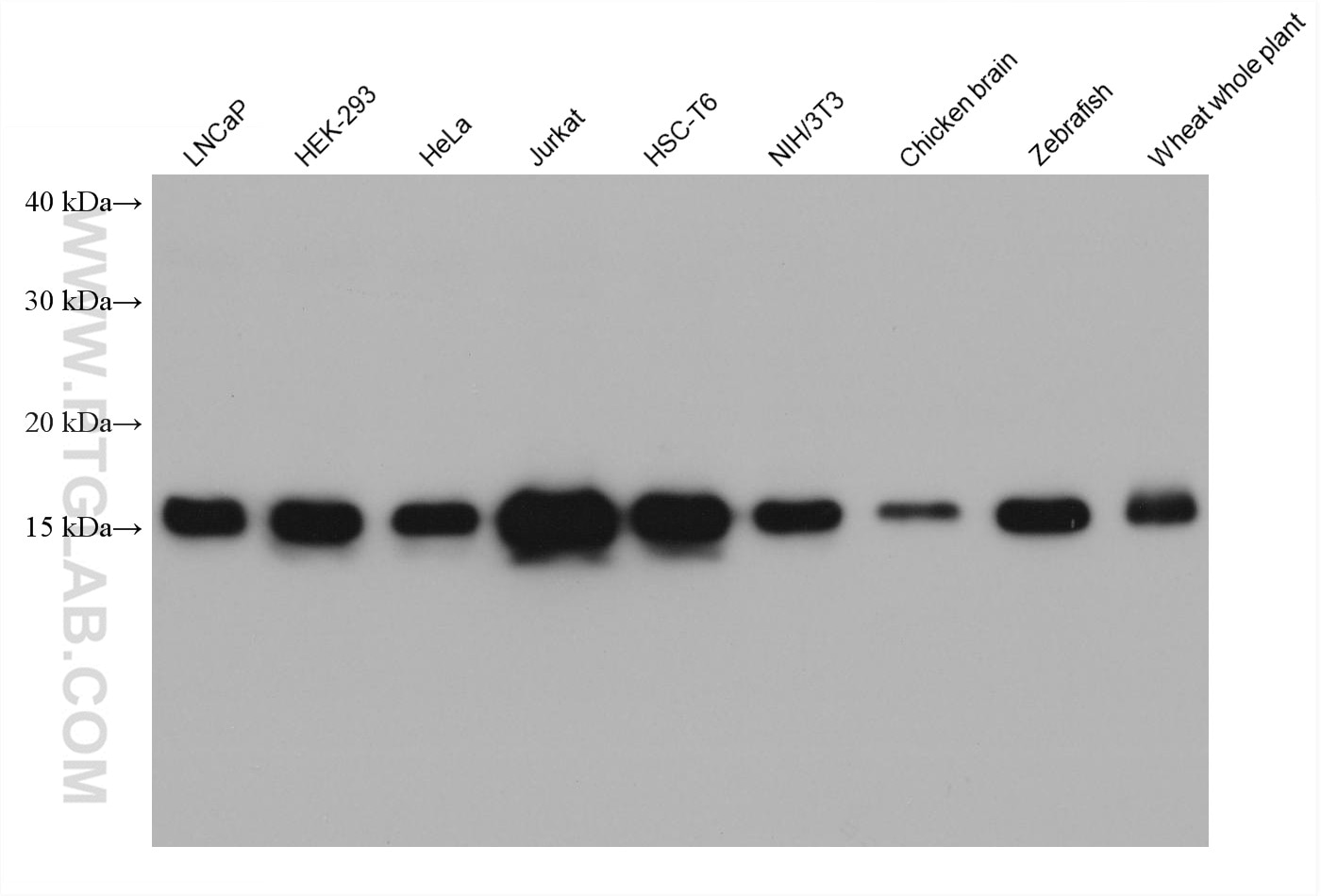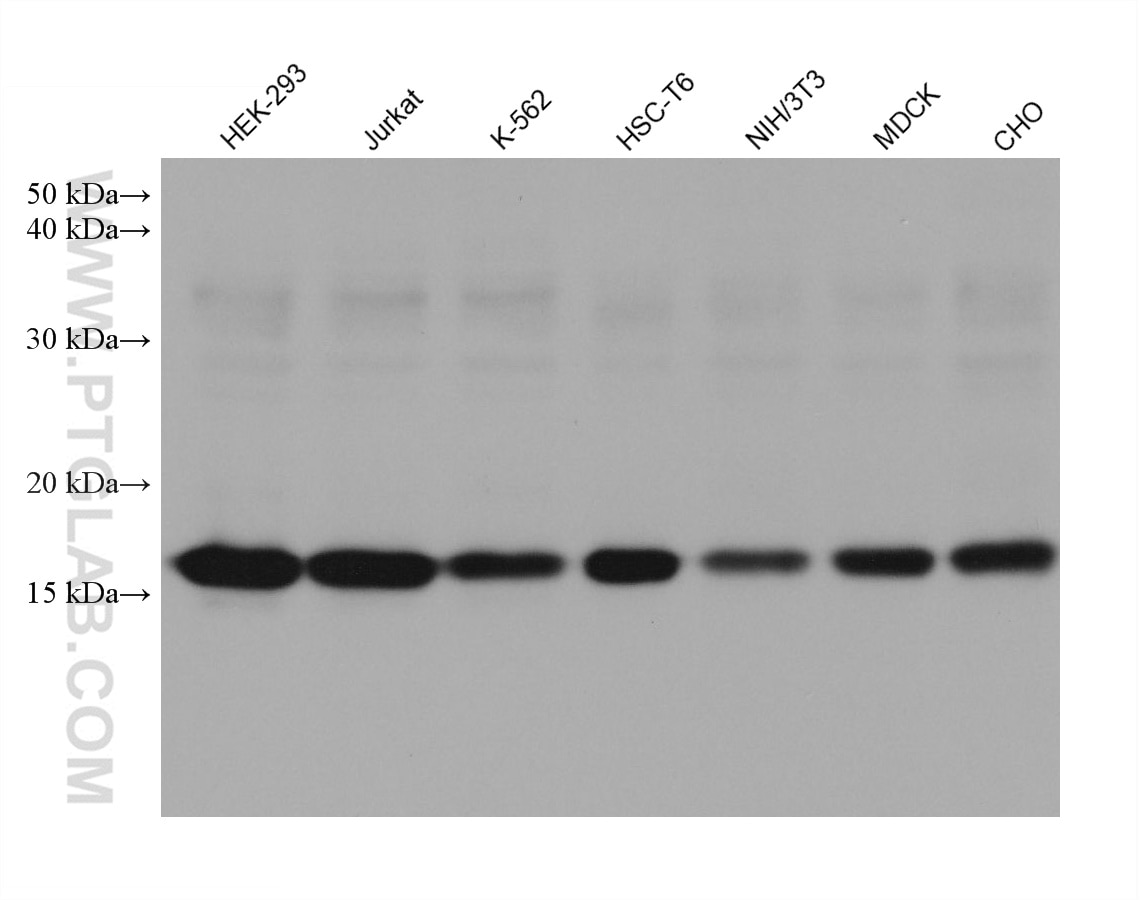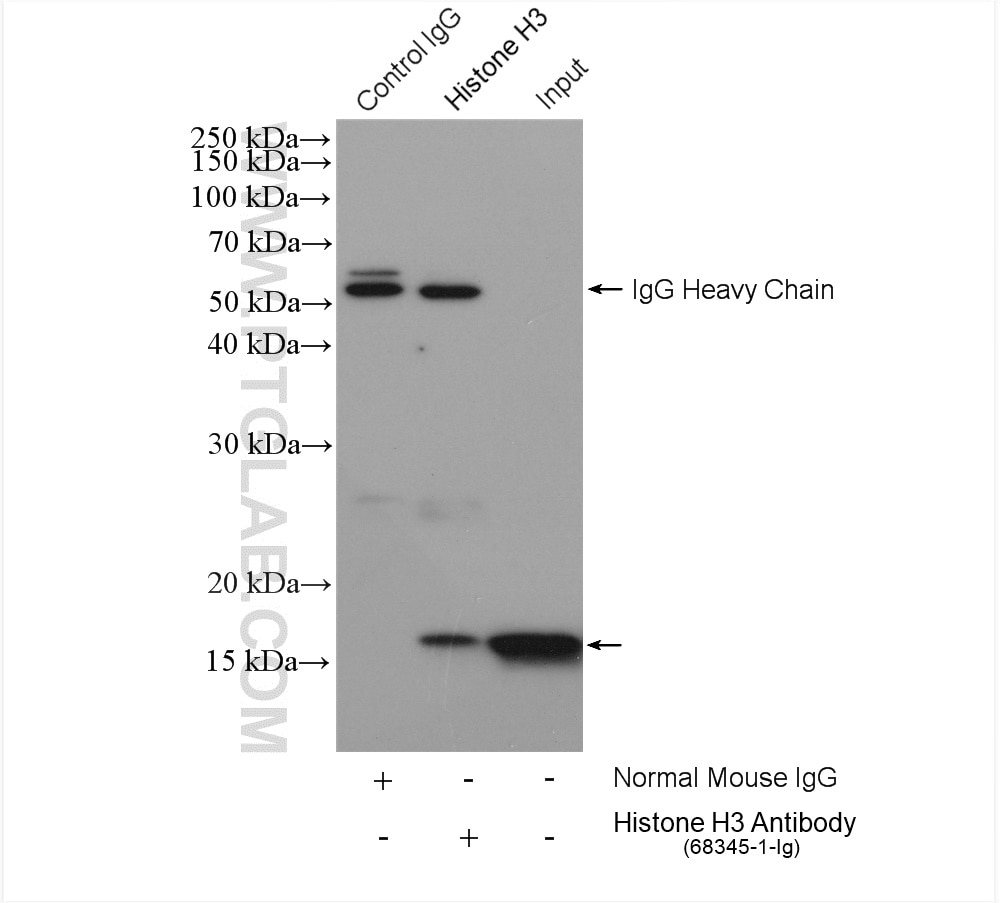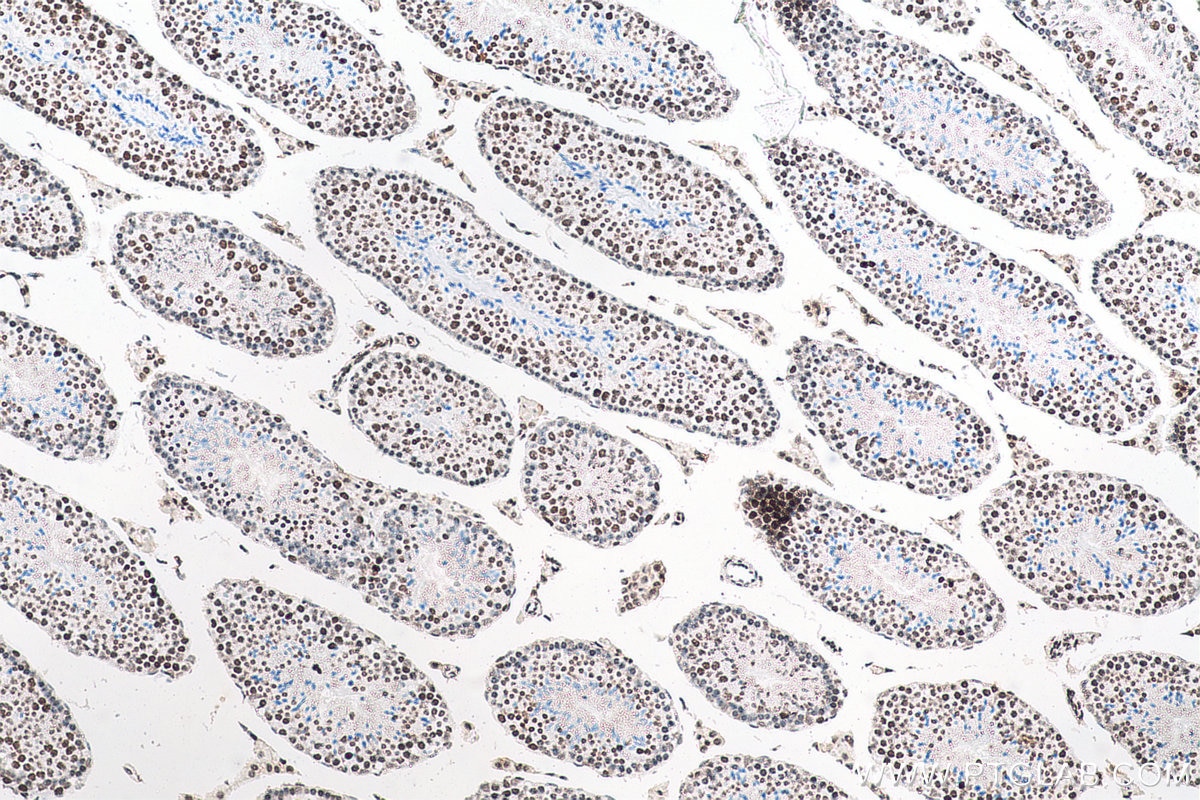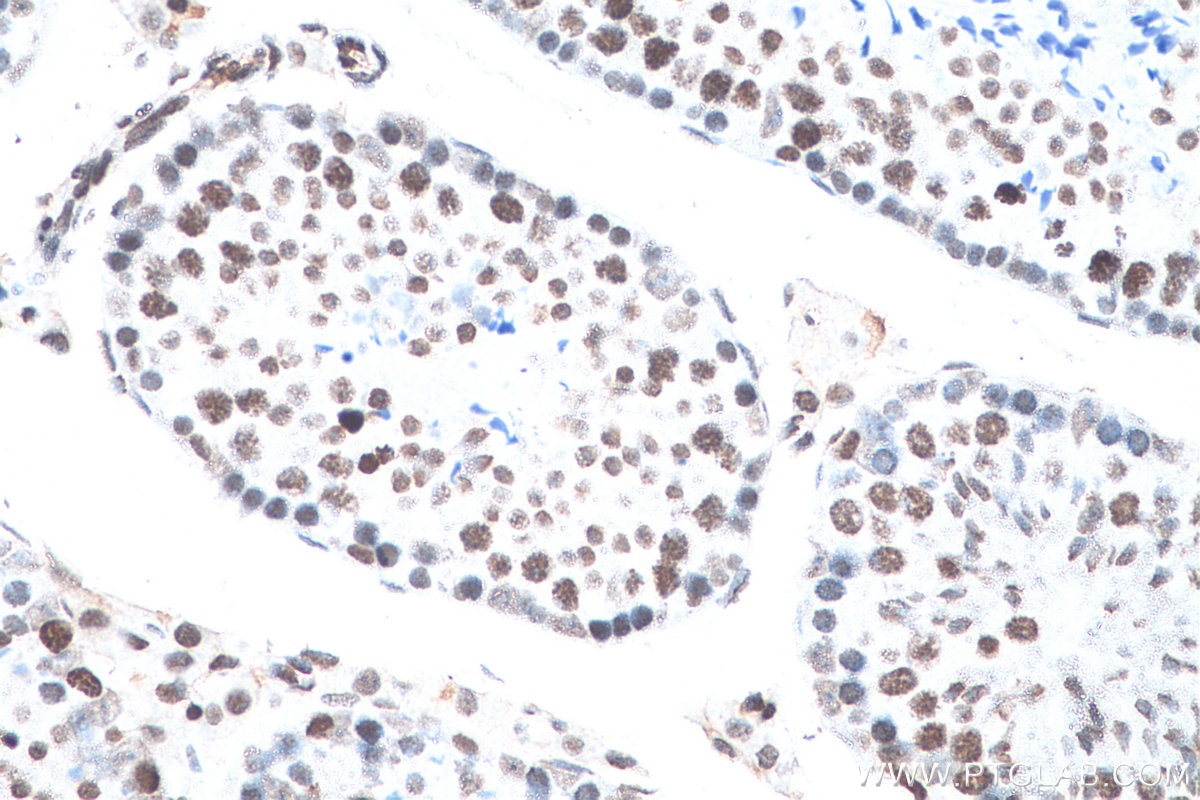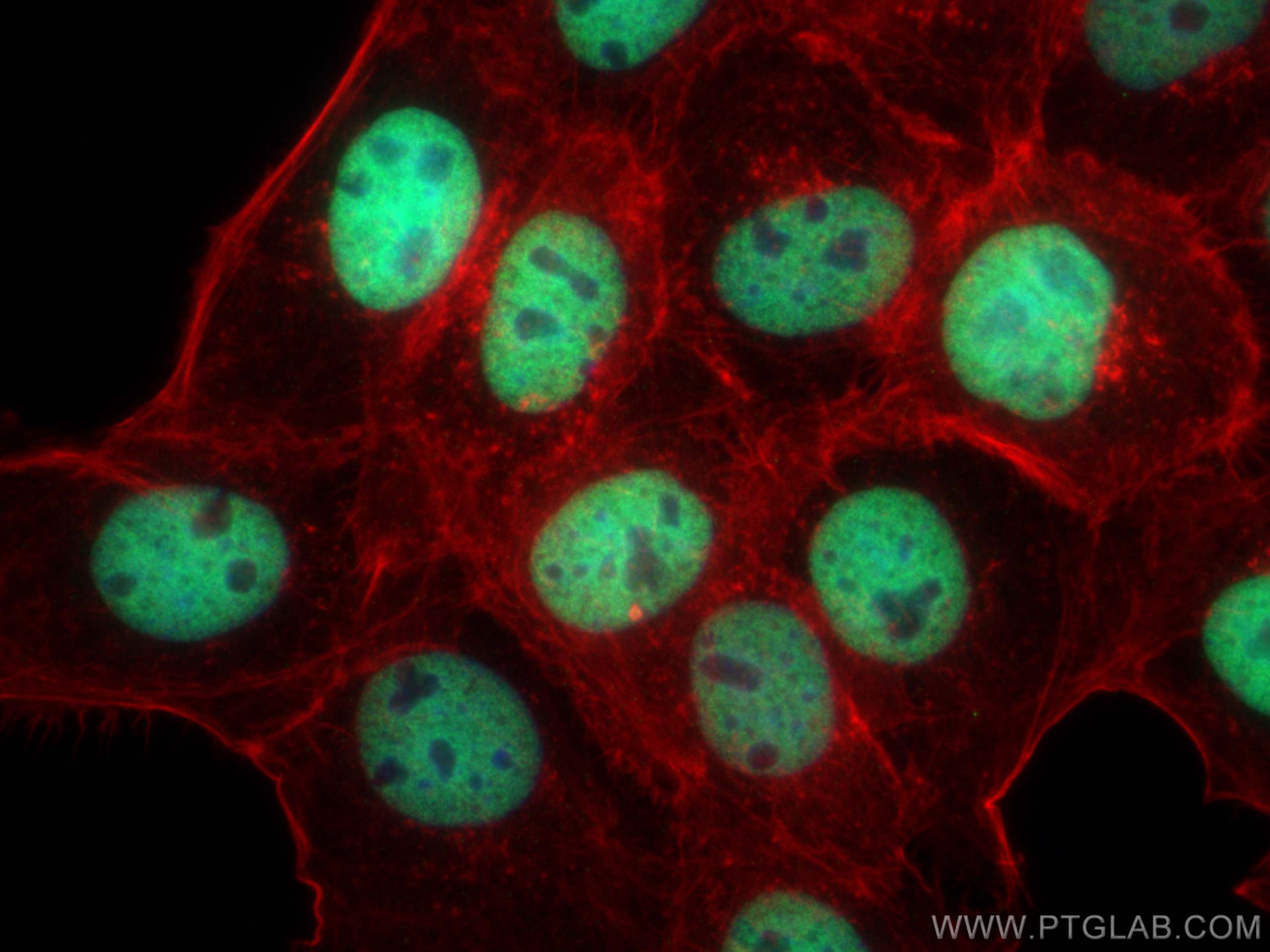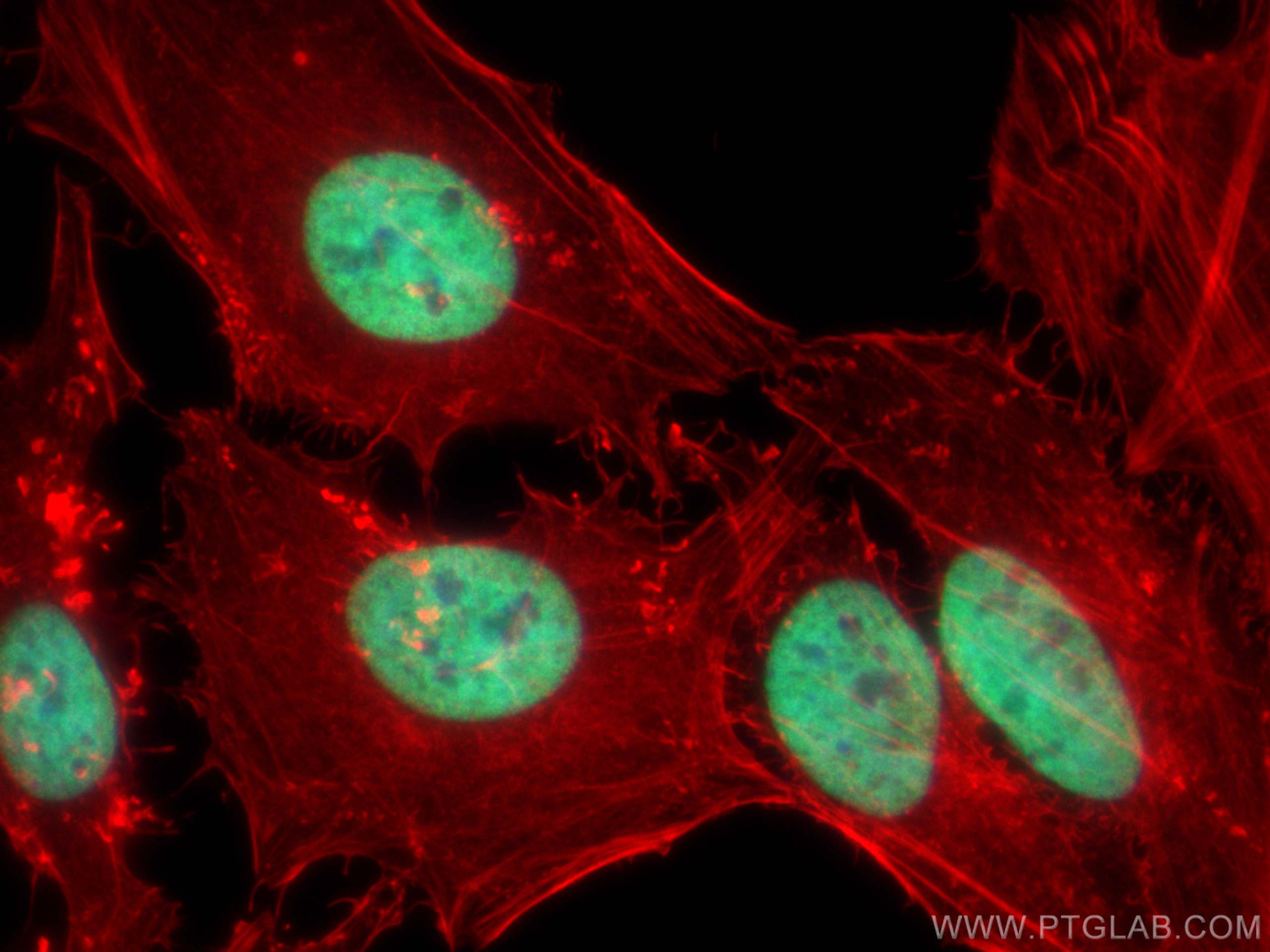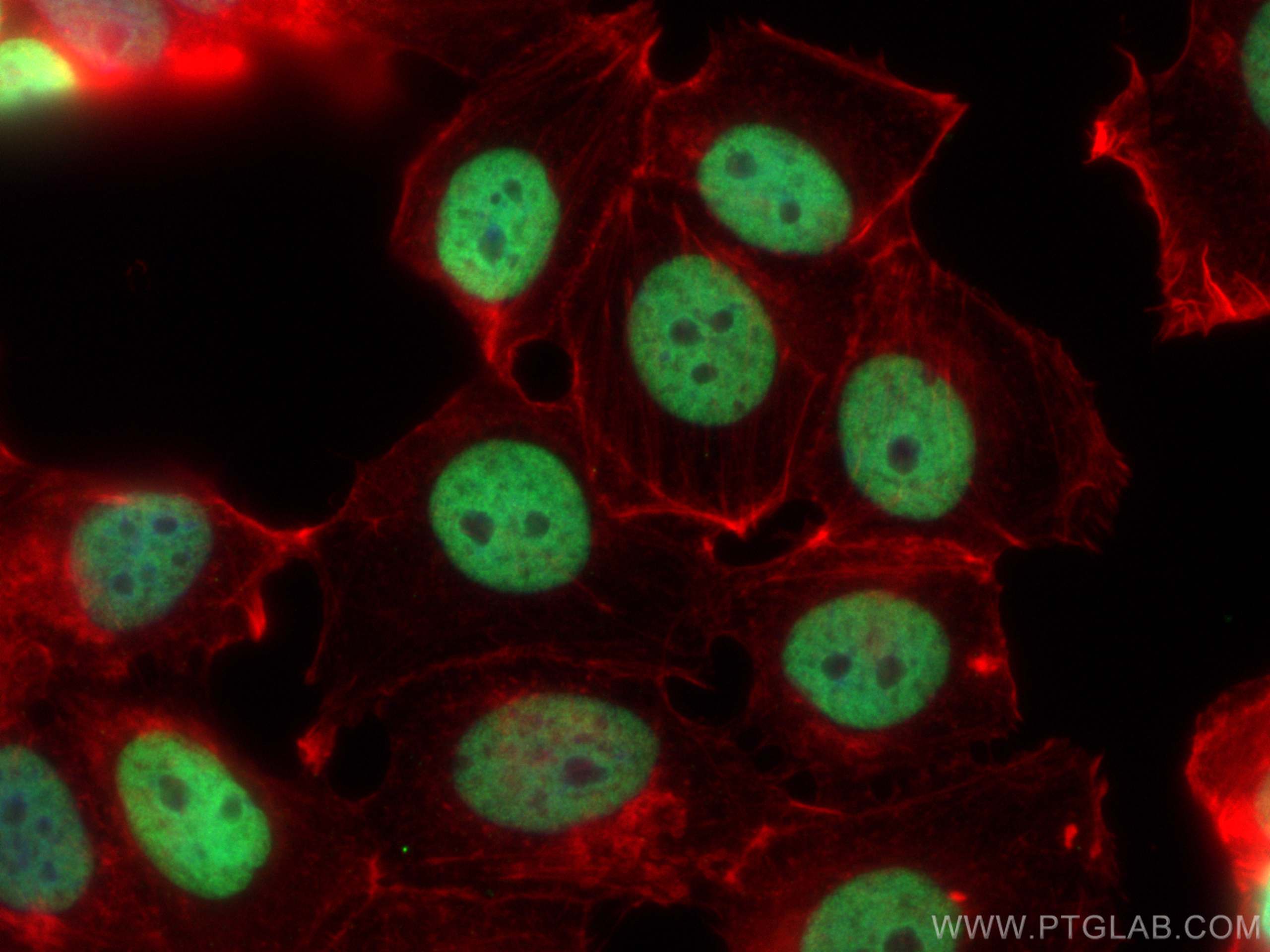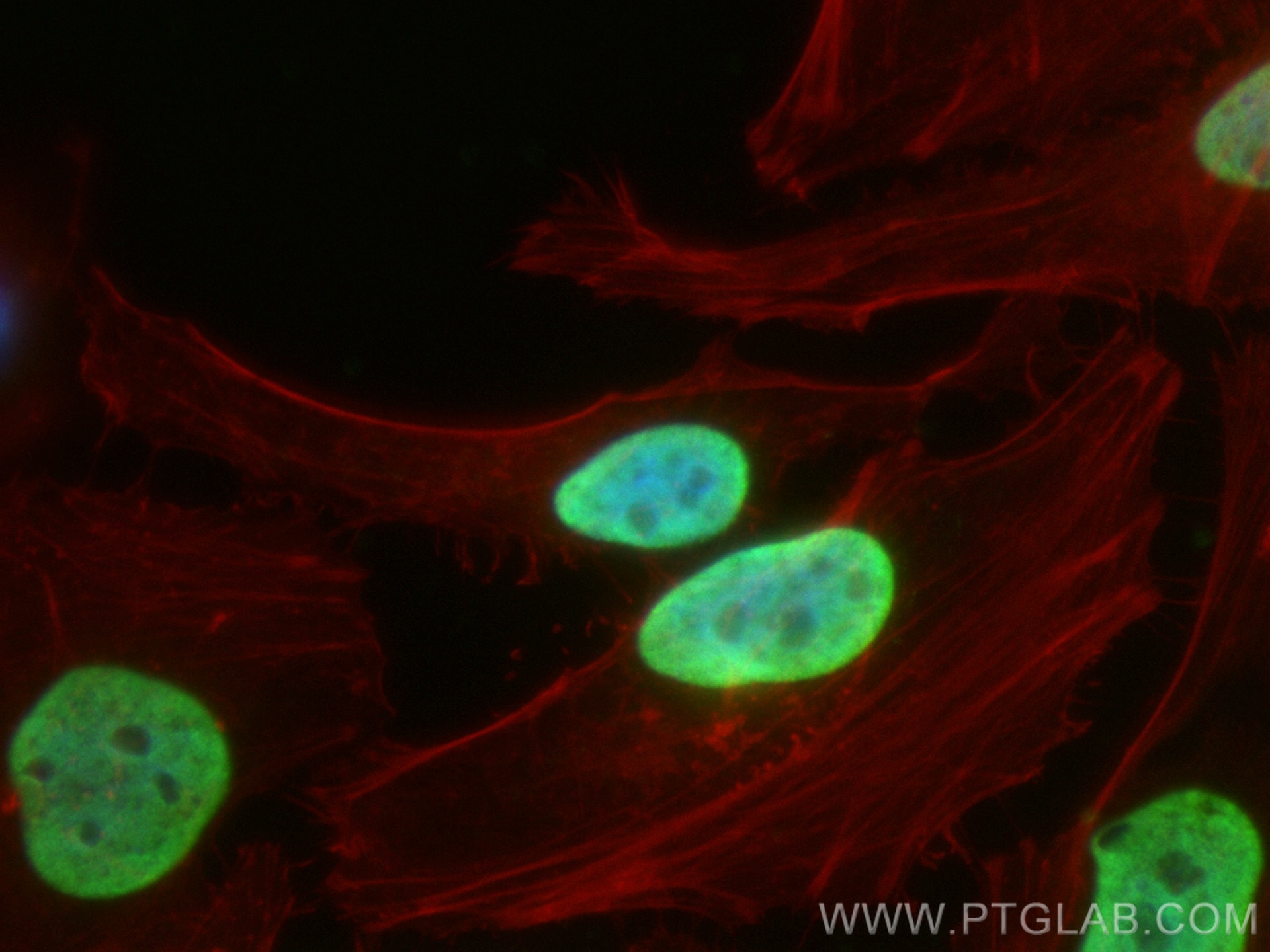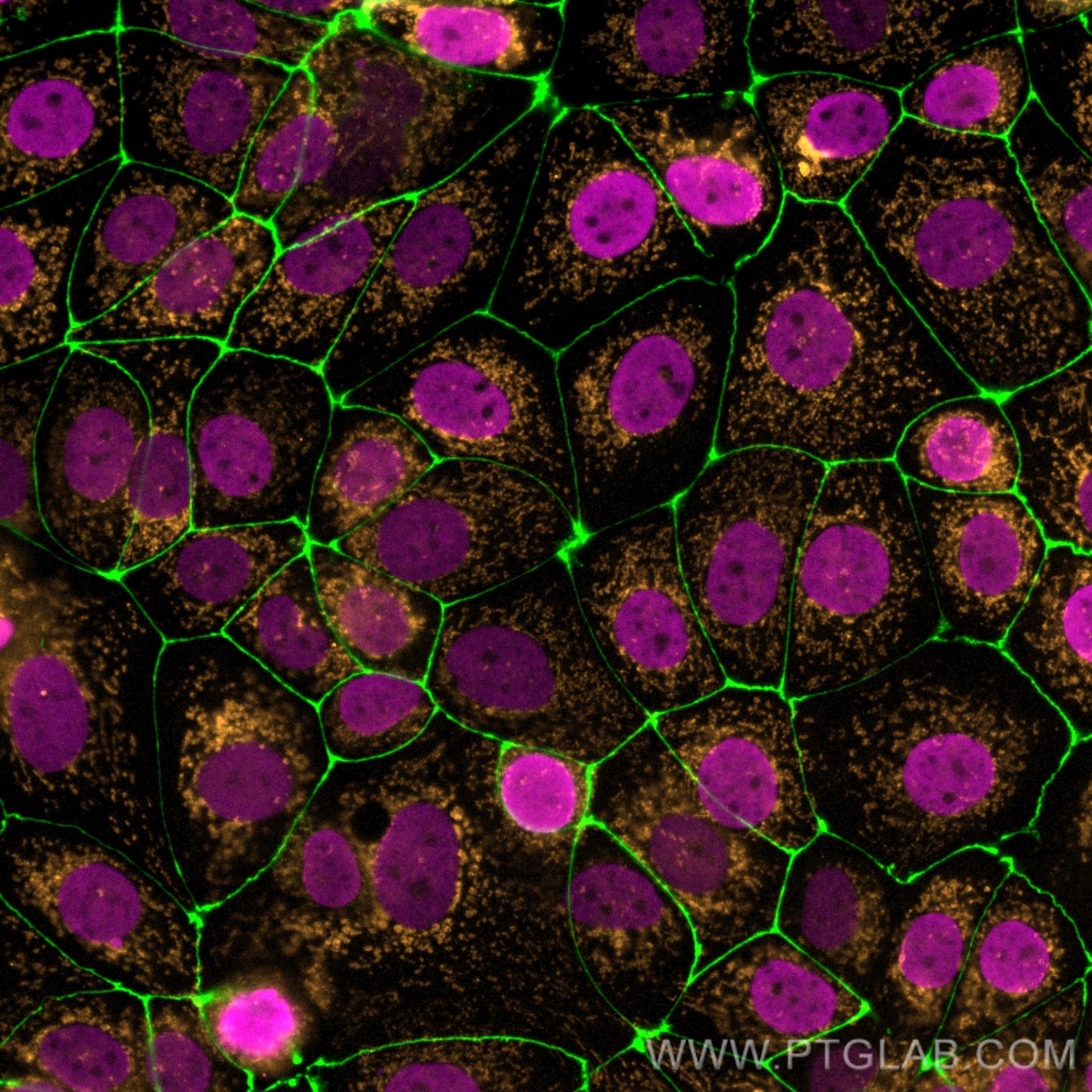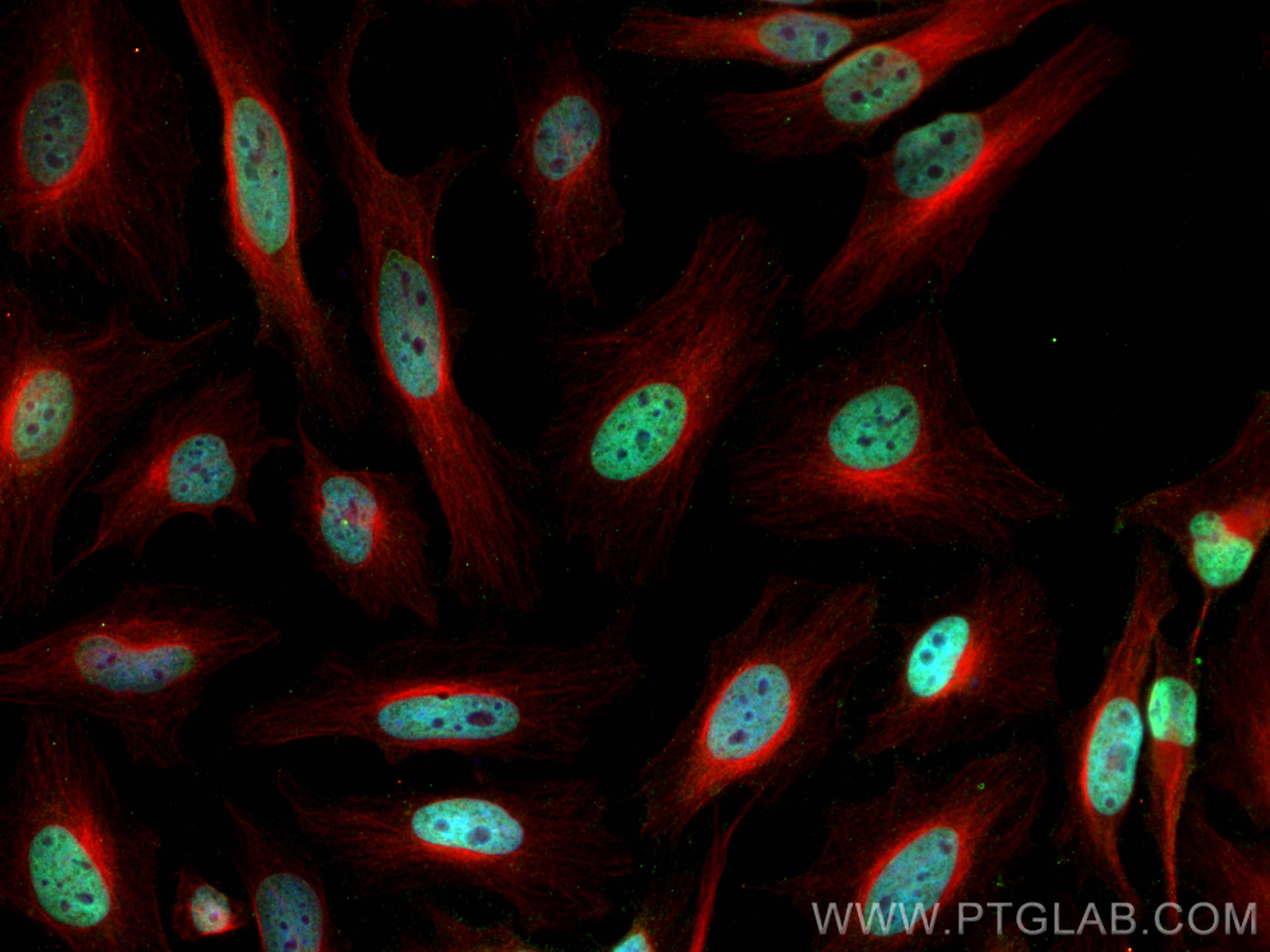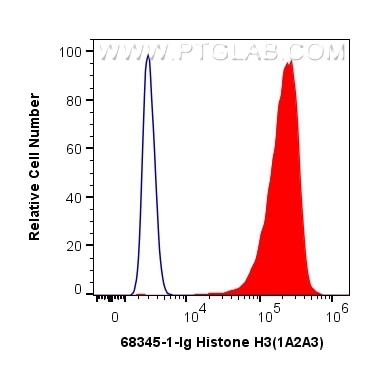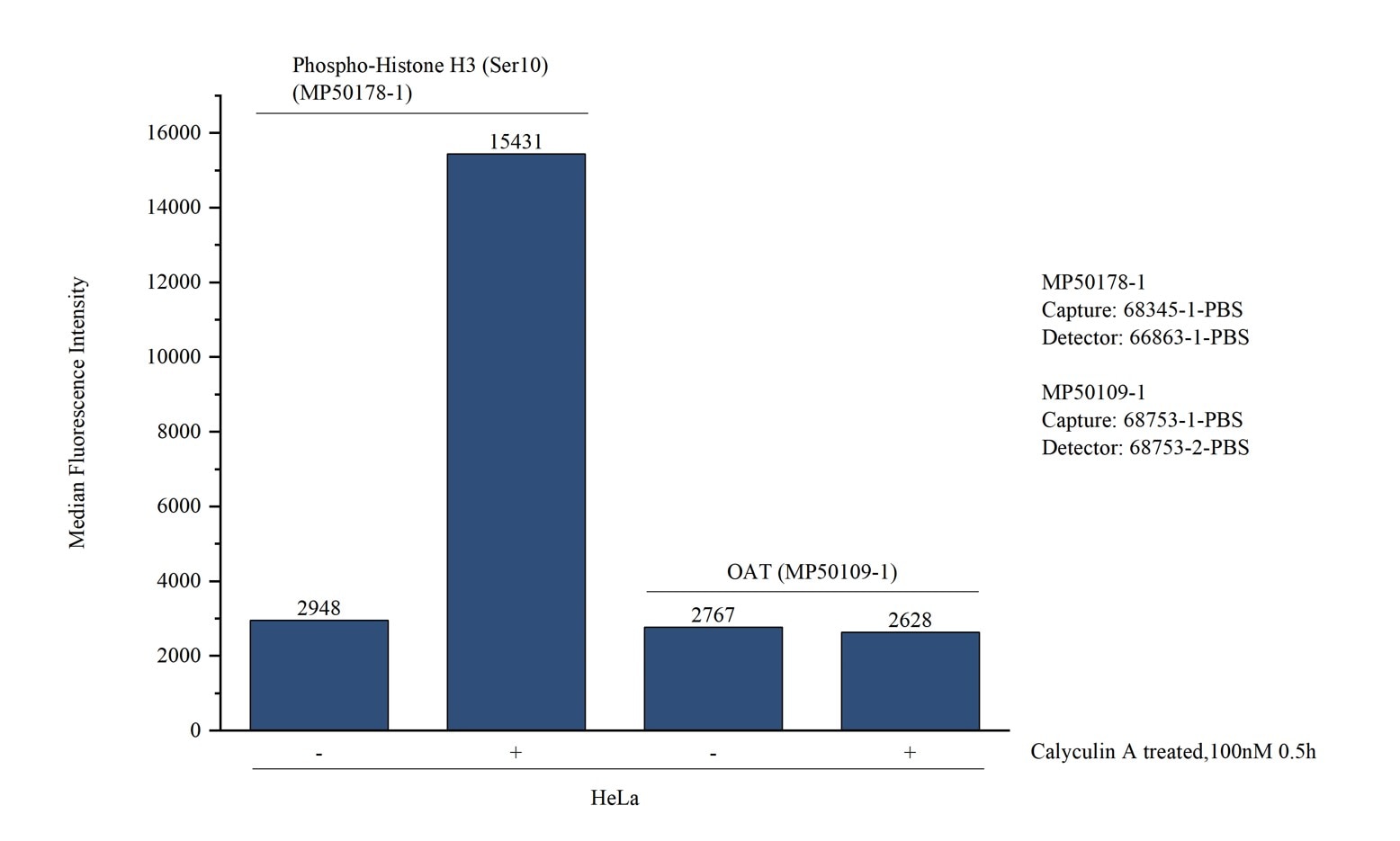Histone H3 Monoklonaler Antikörper
Histone H3 Monoklonal Antikörper für WB, IHC, IF/ICC, FC (Intra), IP, Cytometric bead array, Indirect ELISA
Wirt / Isotyp
Maus / IgG2b
Getestete Reaktivität
hamster, Hausschwein, Huhn, human, Hund, hund, Kaninchen, Maus, Ratte, wheat, Zebrafisch
Anwendung
WB, IHC, IF/ICC, FC (Intra), IP, Cytometric bead array, Indirect ELISA
Konjugation
Unkonjugiert
CloneNo.
1A2A3
Kat-Nr. : 68345-1-PBS
Synonyme
Geprüfte Anwendungen
Produktinformation
68345-1-PBS bindet in WB, IHC, IF/ICC, FC (Intra), IP, Cytometric bead array, Indirect ELISA Histone H3 und zeigt Reaktivität mit hamster, Hausschwein, Huhn, human, Hund, hund, Kaninchen, Maus, Ratten, wheat, Zebrafisch
| Getestete Reaktivität | hamster, Hausschwein, Huhn, human, Hund, hund, Kaninchen, Maus, Ratte, wheat, Zebrafisch |
| Wirt / Isotyp | Maus / IgG2b |
| Klonalität | Monoklonal |
| Typ | Antikörper |
| Immunogen | Peptid |
| Vollständiger Name | histone cluster 1, H3a |
| Beobachtetes Molekulargewicht | 15-17 kDa |
| GenBank-Zugangsnummer | BC066245 |
| Gene symbol | HIST1H3A |
| Gene ID (NCBI) | 8350 |
| Konjugation | Unkonjugiert |
| Form | Liquid |
| Reinigungsmethode | Protein-A-Reinigung |
| Lagerungspuffer | PBS only |
| Lagerungsbedingungen | Store at -80°C. 20ul Größen enthalten 0,1% BSA. |
Hintergrundinformationen
Histones are small, highly basic proteins that consist of a globular domain with unstructured N- and C-terminal tails protruding from the main structure. Histone H3 is one of the five main histones that are responsible for the nucleosome structure of the chromosomal fiber in eukaryotes. Two molecules of each of the four core histones (H2A, H2B, H3, and H4) form an octamer, around which approximately 146 bp of DNA is wrapped in repeating units, called nucleosomes. In addition to their role in DNA compartmentalization, histones also play crucial roles in various biologic processes, including gene expression and regulation, DNA repair, chromatin condensation, cell cycle progression, chromosome segregation, and apoptosis. The ability of histones to regulate chromatin dynamics primarily originates from various posttranslational modifications carried out by histone-modifying enzymes.
